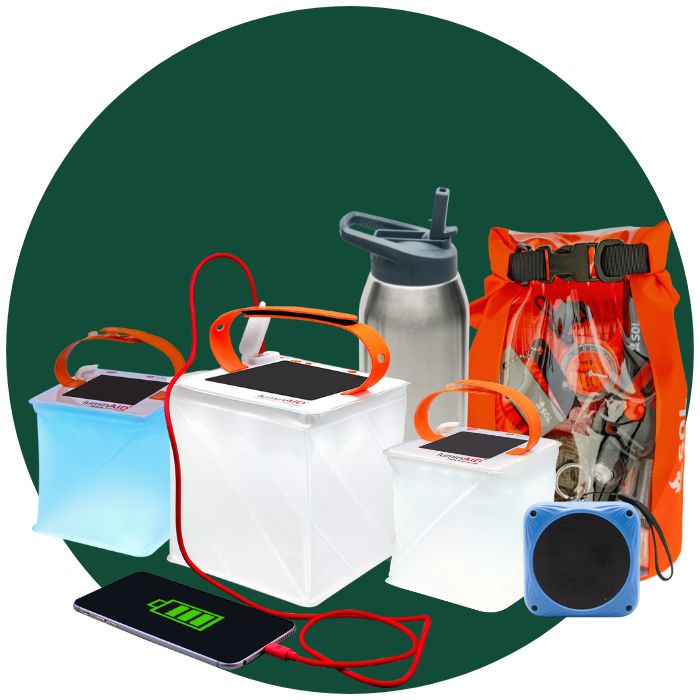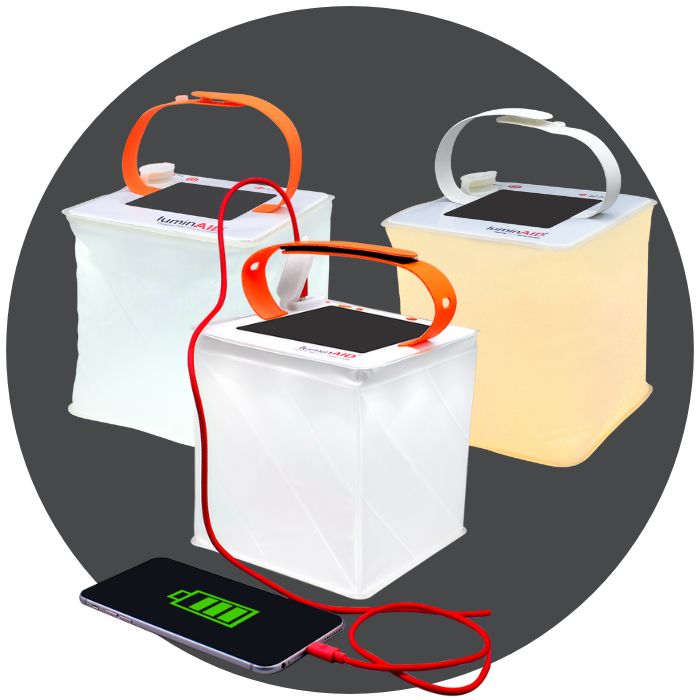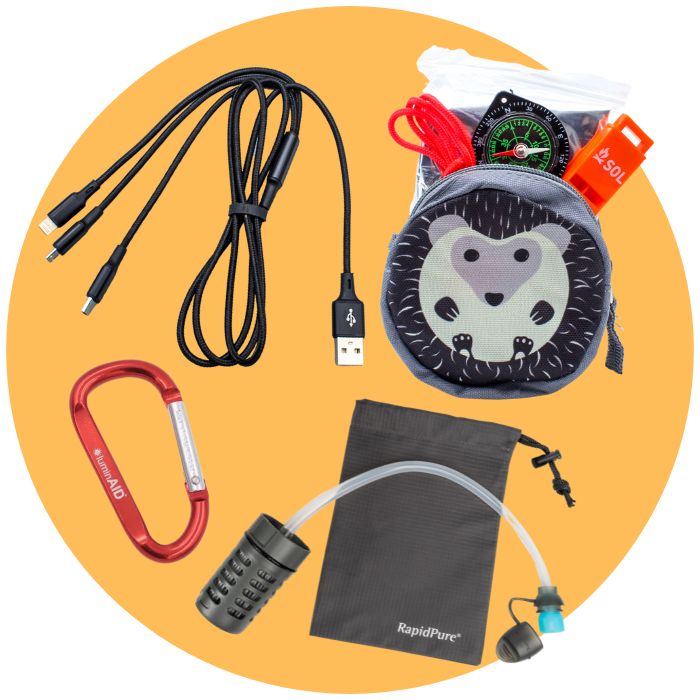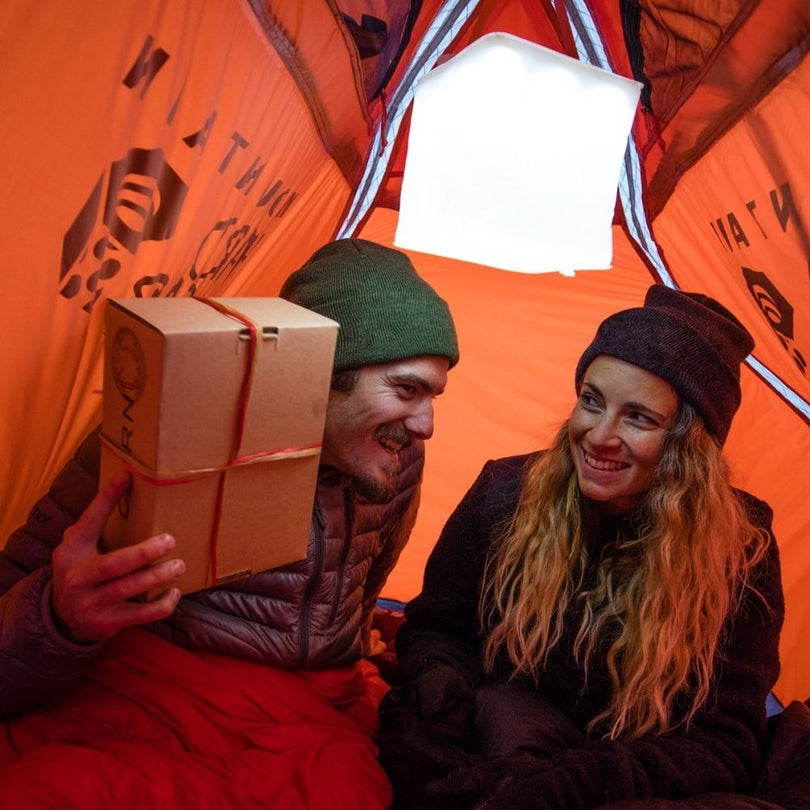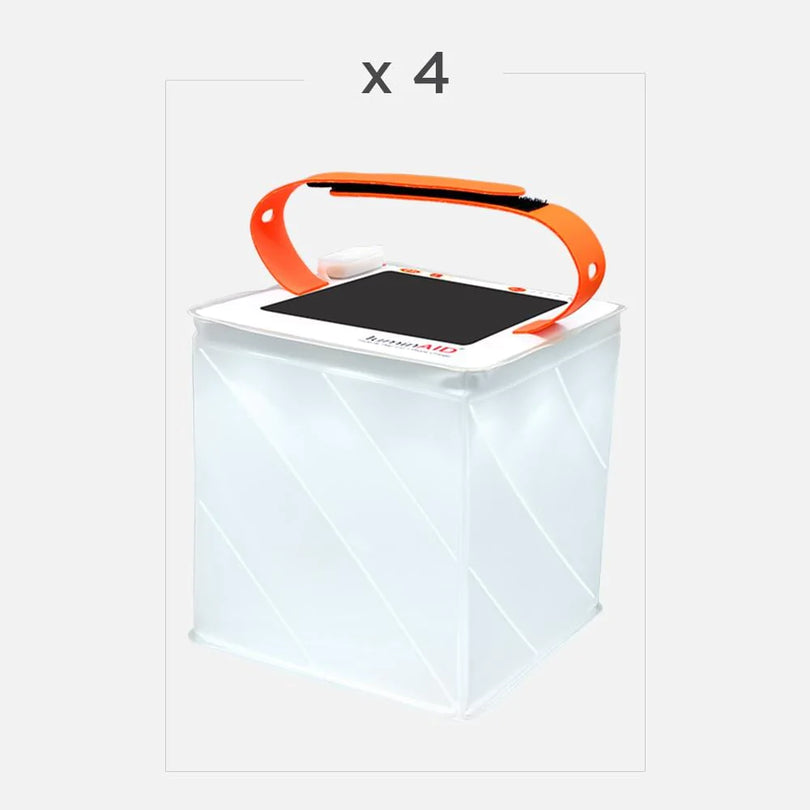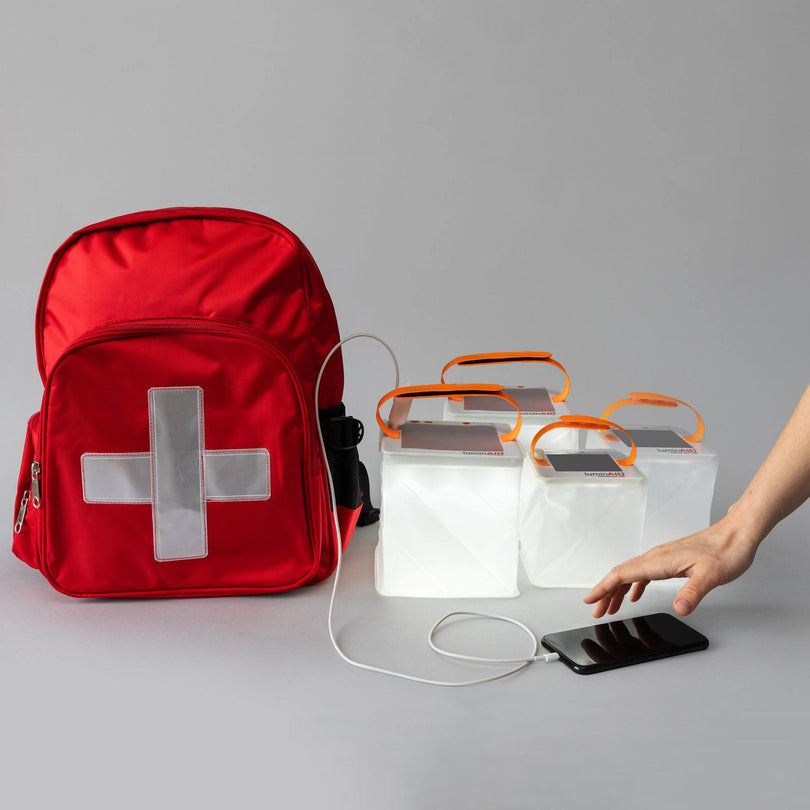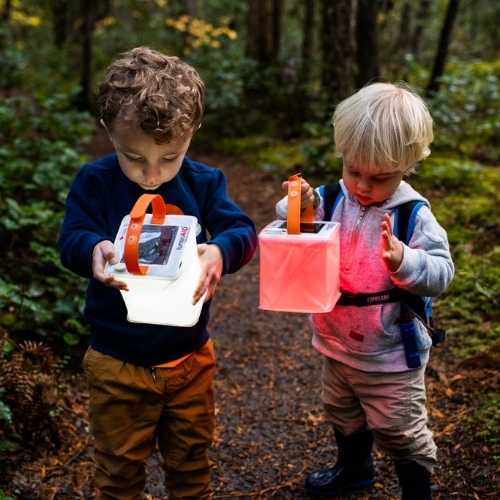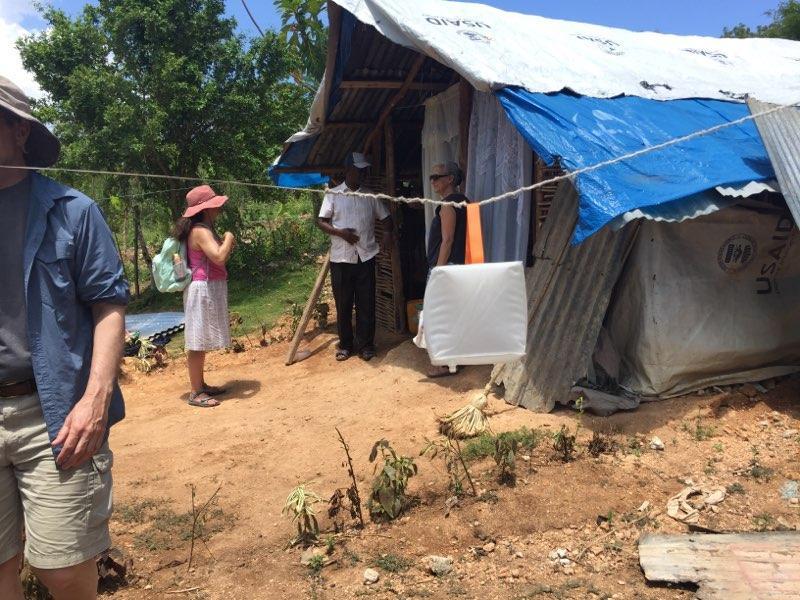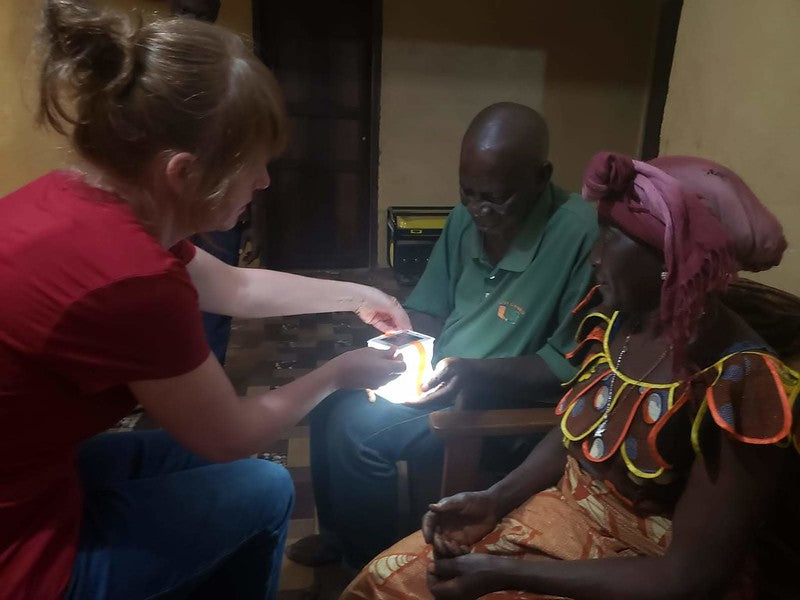When you picture an emergency response situation, the adrenaline and urgency of hoping to help others in crisis first springs to mind. But is that adrenaline-fueled reaction the most effective in the wake of a disaster? Yi Shun Lai, a ShelterBox Response Team member, reflected on accountability in disaster relief in the days following her 13th deployment with the organization.
Taking time to reflect during a long layover on her flight home, Yi Shun first details the process that the ShelterBox MEAL (Monitoring, Evaluation, Accountability, and Learning) Team undertakes to continually “refine both what we deliver to families in need and how we deliver it, so we can be sure we’re doing the best we can,” after an initial delivery of aid.
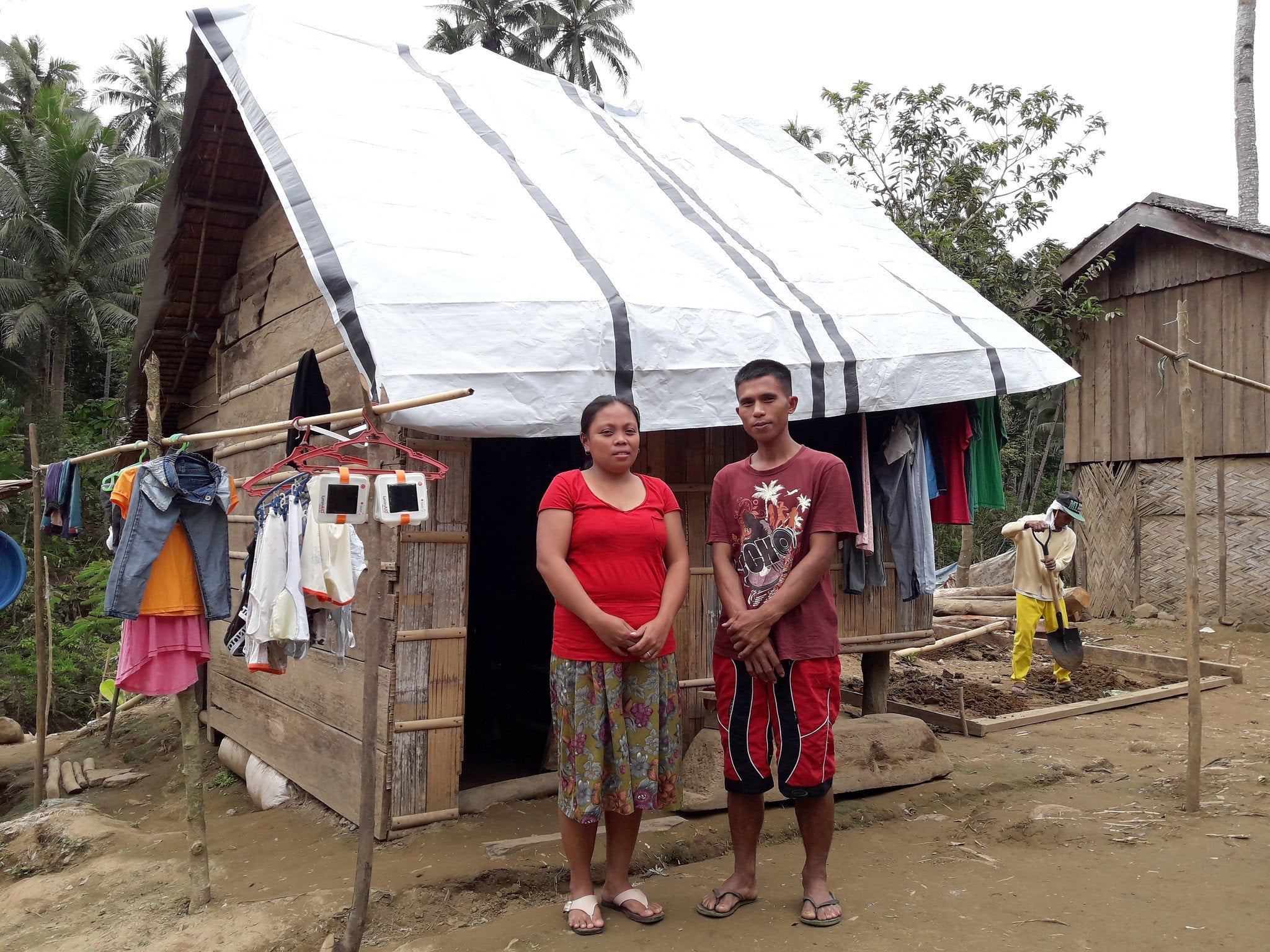
The first component of Post-Distribution Monitoring (PDM), Yi Shun explains, involves returning to sites and checking the proper setup of aid that has been distributed. Tarps and tents are evaluated to ensure appropriate construction; solar lights are checked to ensure there are no operating issues; and families are given advice on how best to maintain the performance of their lights. Not only does this process help serve as an indicator of how well affected families are coping and moving on from disaster, but it also helps the MEAL team evaluate the usefulness and accuracy of ShelterBox's support to families, in order to be better prepared for the next mission.
“This is a bubbly, lively event.”
About six months after aid is deployed, the MEAL Team may initiate a further phase of MEAL, depending on the response, which consists of a longer evaluation and focus group discussions, which Yi Shun reveals is one of her favorite parts of the entire process. “This is a bubbly, lively event,” Yi Shun remarks, as the MEAL Team comes together with friends and community members of the affected families to discuss relevant issues such as “the potential for cash aid packages,” and “how aid affects larger families.”
Yi Shun explains how oftentimes the most insight and reflection come from these interviews. “The air of discussion really loans some focus group participants bravery, and the backing to speak up.”
“What ends up happening is a collaboration of a most remarkable sort.”
Yi Shun takes care to recognize the contributions of local translators during the interview process, oftentimes volunteering their time to learn about the information on the survey in order to best translate this information to families, sometimes even going to great efforts to learn some of the software used by the MEAL Team for smartphone and online versions. These interviewers come from all walks of life: often they are local government or community health workers; some are Rotarians; others are students of local universities and high schools. This diversity, according to Yi Shun, leads to “a collaboration of a most remarkable sort,” where people are able to connect with those they are likely to have never met otherwise.
Ultimately, Yi Shun leaves us with a poignant contrast of her younger passion with a mature introspection after many deployments. “I thought delivering aid by hand to a family in need of support was the pinnacle of responsibility. But I’ve seen a lot more since then, and I’ve often wondered how people are after we leave them.” In creating an awareness of both past efforts and future endeavors, Yi Shun demonstrates how we in the aid community can all take time to reflect on how our efforts to provide aid affect others in the long term.
We recently spoke with Yi Shun in a special event for International Women's Day. Read more about standing with women after disasters, and watch the full interview here.
LuminAID has been a proud supplier for ShelterBox since 2013. Shelterbox has deployed LuminAID solar lights with their famous green boxes to over 22 countries for relief situations including earthquakes, floods, landslides, typhoons, and conflict.
See it on Pinterest.

